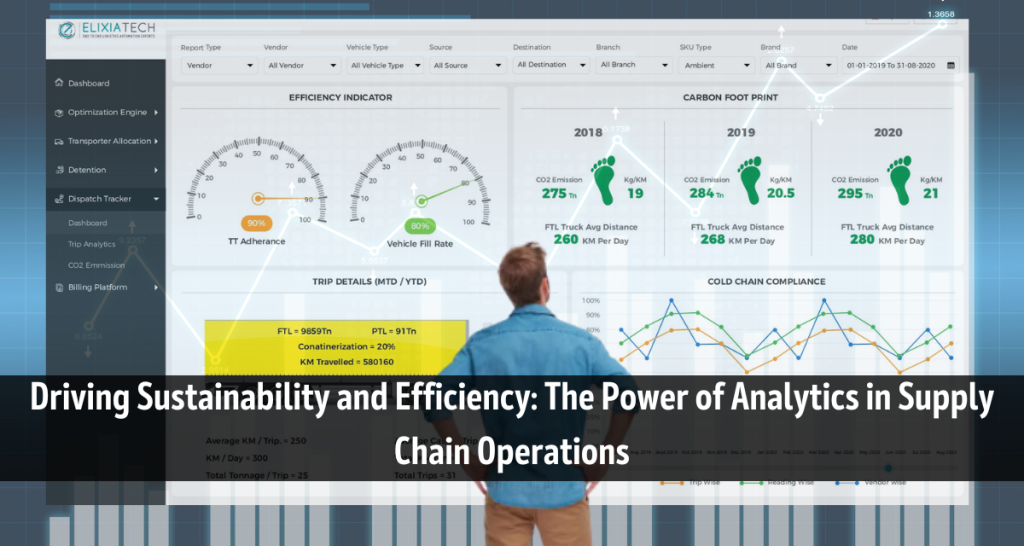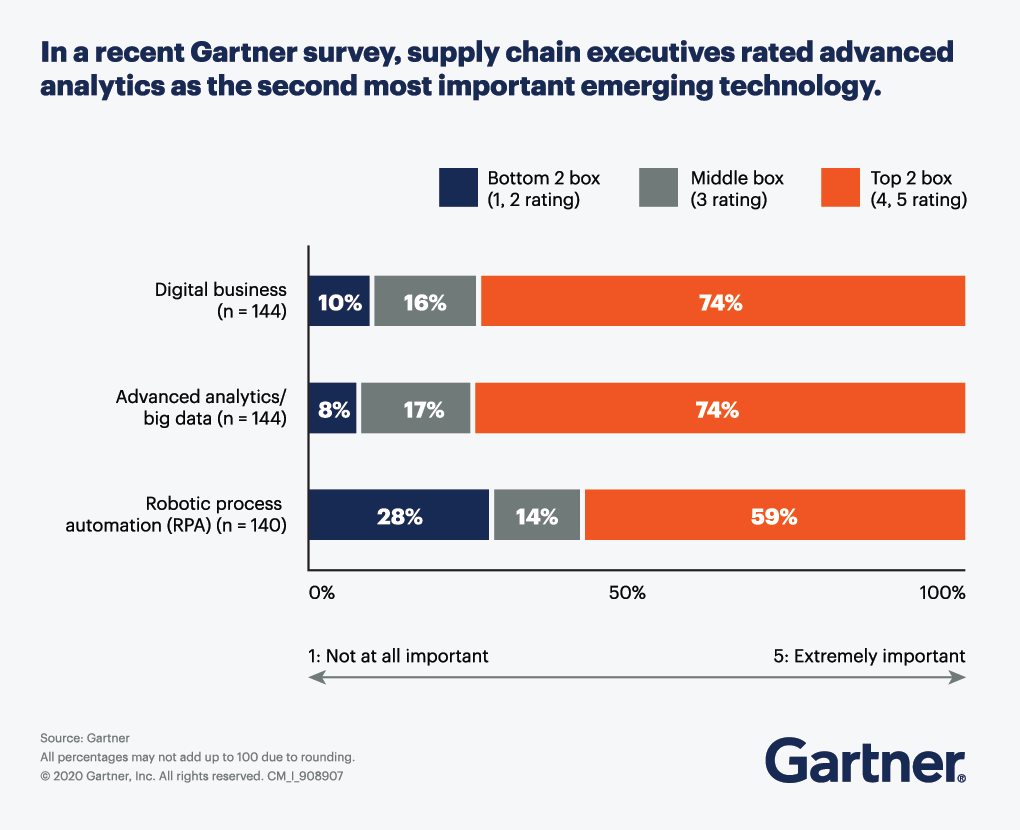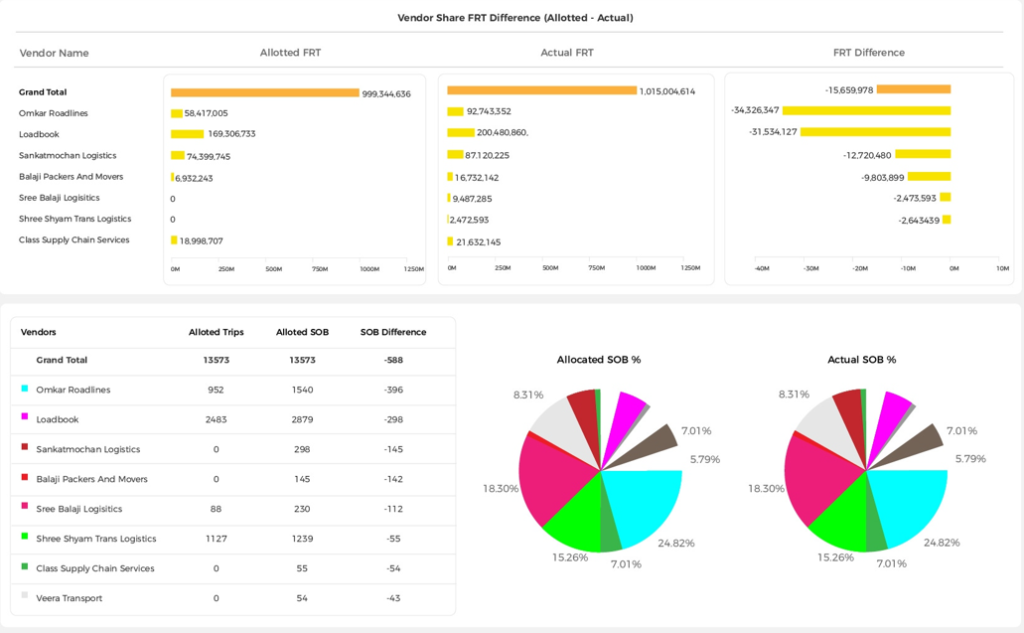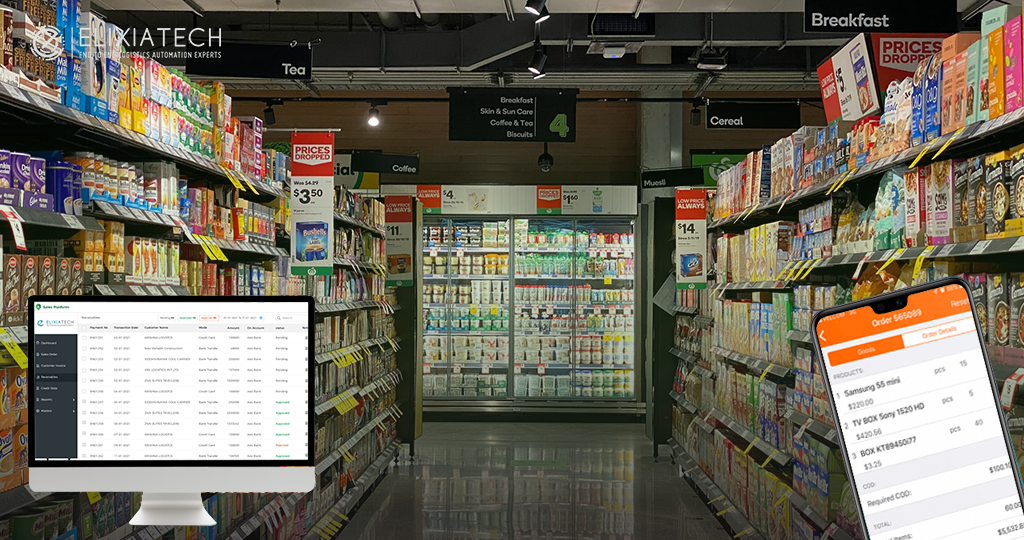
Driving Sustainability and Efficiency: The Power of Analytics in Supply Chain Operations
Driving Sustainability and Efficiency
Sustainability is no longer just a buzzword in the business world. Companies are increasingly realizing the importance of creating environmentally and socially responsible supply chains. In addition to ethical benefits, sustainable supply chains can enhance brand reputation, boost profitability, and diminish environmental impact. This can be achieved through the implementation of sustainable practices, such as using recycled materials, reducing waste, and optimizing transportation routes.
However, achieving sustainability goals within the supply chain is not an easy feat. It requires a data-driven approach to identify improvement areas and measure progress. That’s where the power of Supply Chain Analytics comes in. By leveraging analytics tools, companies can unlock the hidden potential of their sustainable supply chains. From reducing waste to optimizing transportation routes to reducing logistics costs, analytics can provide crucial insights for making informed decisions that benefit the bottom line and the planet.
In this article, we will explore how analytics can be used to drive sustainability within the supply chain and why it is essential for businesses to embrace this approach.
The Importance of Sustainable Supply Chains
A sustainable supply chain is a business model focusing on a company’s operations’ environmental and social impacts. It takes into account the entire lifecycle of a product, from raw material sourcing to end-of-life disposal. The primary objectives of sustainable supply chains are waste reduction, minimization of carbon emissions, and promoting ethical business practices.
Growing climate change awareness fuels the demand for sustainable supply chains. Consumers are becoming more mindful of the environmental and social effects associated with the products they purchase. This results in a rising demand for sustainable alternatives. By adopting sustainable supply chain practices, companies position themselves better to meet this demand and maintain a competitive edge in the market.

The Role of Analytics in Sustainable Supply Chain Management
Data analytics play a critical role in sustainable supply chain management. It enables companies to analyze their supply chain data, drive innovation, enhance efficiency, and identify opportunities for improvement. By using analytics, companies can track their carbon footprint, measure their environmental impact, and identify areas for cost savings.
Analytics can help companies make informed decisions about their supply chain operations. Utilize analytics to reduce logistics cost slippage: sustainable supplier identification, optimized transportation routes, reduced detention time, minimized waste, and risk mitigation through supply chain data analysis.
Benefits of Using Analytics in Sustainable Supply Chain Management
Using analytics in sustainable supply chain management offers numerous benefits that contribute to improved environmental performance and social responsibility. Firstly, supply chain analytics provides valuable insights and visibility into supply chain operations which enables companies to identify inefficiencies, waste hotspots, and areas for improvement. This data-driven approach helps optimize processes, reduce resource consumption, and minimize waste generation, thereby reducing environmental impact.
Secondly, analytics allows companies to accurately measure and track key performance indicators (KPIs) related to sustainability. Organizations can set targets, track progress, and make data-informed decisions for continuous improvement by monitoring carbon emissions, water usage, and energy consumption.
Thirdly, analytics enhance transparency and traceability across the supply chain. This enables companies to gather and analyze data on suppliers’ practices, ensuring compliance with ethical and social standards. This information empowers companies to make informed sourcing decisions, supporting responsible and sustainable practices throughout their supply network.
Moreover, analytics helps identify and mitigate risks associated with sustainability, such as supply chain disruptions, compliance issues, or reputational risks. By proactively analyzing data and identifying potential vulnerabilities, companies can implement measures to enhance resilience, minimize risks, and maintain a sustainable supply chain.
Lastly, by leveraging analytics, companies can unlock opportunities for innovation and collaboration. Data-driven insights drive the discovery of sustainable practices, eco-friendly product development, and partnerships with like-minded organizations. This fosters a culture of sustainability and positions companies as leaders in their industries.
Implementing Sustainable Supply Chain Analytics: Best Practices
Implementing sustainable supply chain analytics requires a strategic approach. Here are some best practices for implementing sustainable supply chain analytics:
- Set clear sustainability goals: Companies should set clear sustainability goals and develop a roadmap for achieving those goals.
- Invest in the right technology: Companies should invest in the right technology to track and analyze their supply chain data.
- Collaborate with suppliers: Companies should work closely with their suppliers to ensure that they are meeting sustainability standards.
- Monitor progress: Companies should regularly monitor their progress toward their sustainability goals and adjust their strategy as needed.
- Communicate with stakeholders: Companies should communicate their sustainability efforts to their stakeholders, including customers, employees, and investors.
Elixia’s Supply Chain Analytics
Analytics helps you generate powerful reports and provides real-time dashboards for all logistics-related processes. It provides insightful information regarding logistics spending, vendor performance, asset utilization, carbon footprint tracking, and various other vital parameters. It calculates operational and cost slippage across different processes, highlighting the non-performing areas of the supply chain. This visibility helps senior management and key decision-makers make timely corrective actions and data-driven growth, optimization, and sustainability decisions.
Conclusion
Sustainable supply chains offer more than just ethical benefits. In fact, businesses can discover untapped potential in their supply chains, including cost savings, risk reduction, and enhanced efficiency. For example, by reducing carbon footprints, businesses can save money on energy costs and avoid fines for environmental violations. Additionally, by enhancing supplier relationships, businesses can ensure a reliable supply of goods and services, which can help to reduce costs and improve efficiency. Overall, sustainable supply chains can drive business success while positively impacting the planet. Therefore, by integrating sustainable supply chain practices with data analytics, companies can shape a more sustainable future for themselves and the world.




